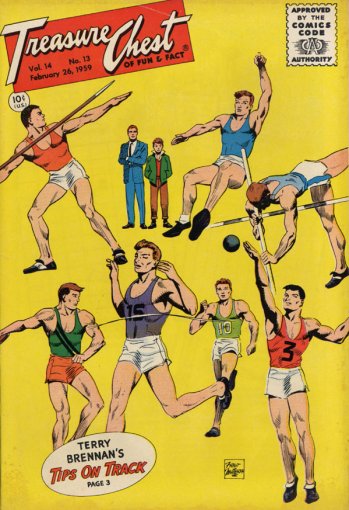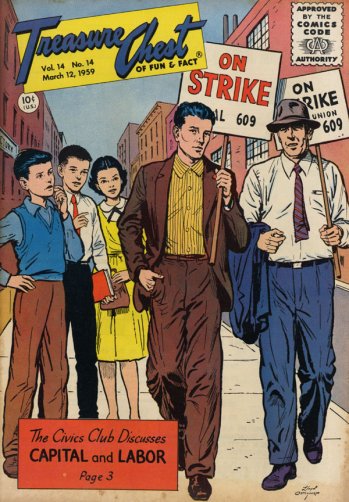I'm finally climbing out of the worst headcold I've had in three years, and although I'm still not at my ever-best, it's time to continue the series here on politics without a) naming individual candidates, and b) anger. Point a) is a requirement I've placed on myself; you needn't feel thus constrained. Point b) is in force for both of us, and so far (reading the comments on LiveJournal) I think it's working extraordinarily well.
Today, I'd like to go back to fundamental principles and ask, What is government actually for? We don't teach anything about the ideas behind government in this country anymore, because any time one tries, his or her tribal opponents yell, indoctrination! This is largely due to the sad fact that there are two theories of wealth locked in eternal warfare: The position that wealth happens by luck or corruption and must be redistributed; and the position that wealth happens by work and must be retained by the worker as his or her property.
The truth, as always, is somewhere in the middle. Minor wealth is usually obtained by work. Great wealth is almost always more luck than anything else, at least in developed nations where corruption does not completely dominate government. (I use “wealth” in the technical sense here, as owned assets of any kind, without any implication of scale. A man with a quarter has some wealth, even if he's starving to death.) It seems pretty clear from my reading of history that wealth tends to concentrate over time until wealth concentration makes societies unstable. This is one point (among many others) that Will and Ariel Durant make in their superb little book, The Lessons of History. The redistributionists have history on their side. But…you can't redistribute what you ain't got. (Marxism tried to do this, and killed 100,000,000 people in the process.) So the fundamental purpose of government is this: To establish and maintain the conditions necessary to keep the rate of wealth creation ahead of population growth. Put another way: Government needs to create a framework within which people can work to support themselves. By “framework” I do not mean government jobs, which exist only by siphoning wealth out of the private sector. I mean things like maintaining civil order and a stable currency, respect for private property, allowing trade with other nations, and defense from attack. I could put a number of other things on the list, but those are the biggies.
It's a complicated and subtle business. Total freedom does not maximize the rate of wealth creation; I've read that in many places. There's a sweet spot where a certain amount of regulation, read here as limits on economic freedom, yields the highest rate of wealth creation. Alas, there's no tag on the graph to mark the spot—and the location of the spot changes unpredictably. There is, however, a huge hint: Maximizing economic opportunity for individuals (as opposed to public or private corporate bodies) probably leads more directly toward the sweet spot than anything else we could do. This includes access to markets, choice of education, career, and workplace, and freedom to create new businesses (and thus jobs) with minimal interference.
What troubles me about modern politics is that the forces controlling both sides are opposed to expanding the economic freedom of individuals. Both sides look to government to expand their power, and power is really what politics is about. On the left, the tendency is for the aggregation of power of governmental and semigovernmental bodies at the expense of individuals. On the right, the tendency is toward aggregation of power of large corporations against individuals and especially against entrepreneurs. The right/left mapping to political parties breaks down here: The most rabid Republicans I know are small business owners, who are willing to work for little or nothing when starting out or when conditions get bad. The big corporate people I know are much more nuanced in their politics, and many admit to being Democrats. This seems obvious in retrospect, but it took a fair bit of time for me to figure out: Big corporations fear startups far more than they fear government. (Like recognizes and begets like: The bigger a corporation is, the more it actually begins to look like a government.) Governments and corporations both strive toward monopolies; governments of force, and corporations of markets. Without limits, those monopolies work against the well-being of individuals, and they grow unless explicitly checked.
The depressing thing about this election cycle is that neither party seems especially interested in economic opportunity for individuals, and especially in job creation. The Democrats are basically owned by Big Labor and the tort bar. The Republicans (what's left of the party, at least) are beholden to certain large corporations who want protected markets, and a relative handful of conservative social organizations that are mostly religious in underpinnings. There's not a whiff of populist sentiment on either side. Many people who would otherwise lean Republican are disgusted and will vote Democratic just to kill the cancer of the last eight years.
There's opportunity there; the Republicans could win (long-term) by losing. It's interesting to look back and see that when the Democrats have taken control of all three elected branches of government, they don't hold it very long. If the Republican party is ever reborn with a genuinely populist message, they could well put the Democrats back into the broom closet for another twenty years. Much collateral damage happens as the pendulum swings, but I don't think anybody knows how to keep political parties from abandoning the center, which these days means respect for the primacy of the individual against moneyed interests at either extreme of the left/right axis. The party that takes the center and keeps it will rule until they forget why they came to rule.
I see from my notes that I could go on for another several thousand words, but that's all I want to deal with tonight. And tomorrow, mon dieu. I wish I could just jump directly to Wednesday.
 Even diehard comics fans have generally never heard of
Even diehard comics fans have generally never heard of  If Treasure Chest is currently famous for one thing, it was for the 1961-62 series
If Treasure Chest is currently famous for one thing, it was for the 1961-62 series 









